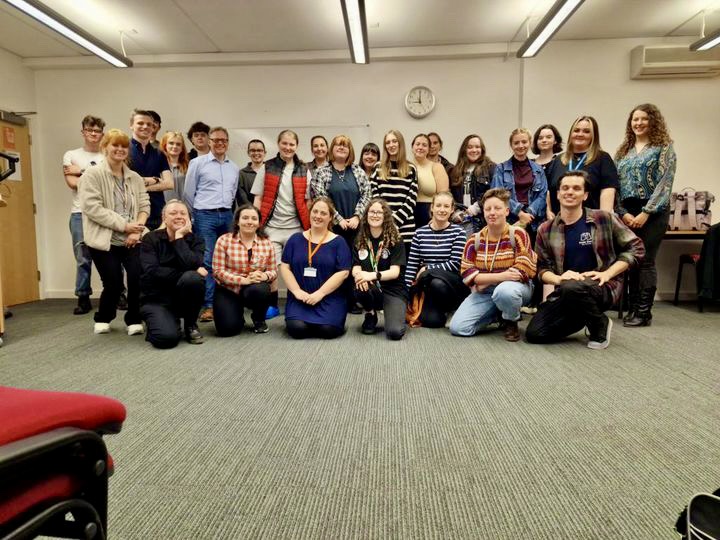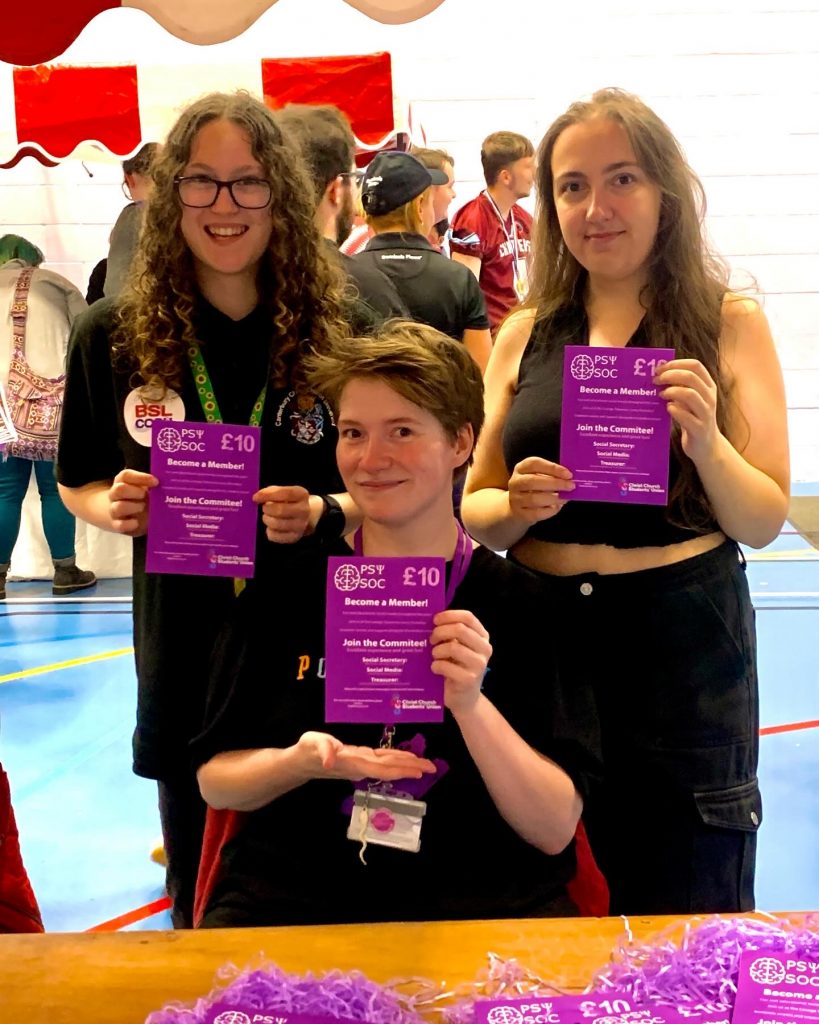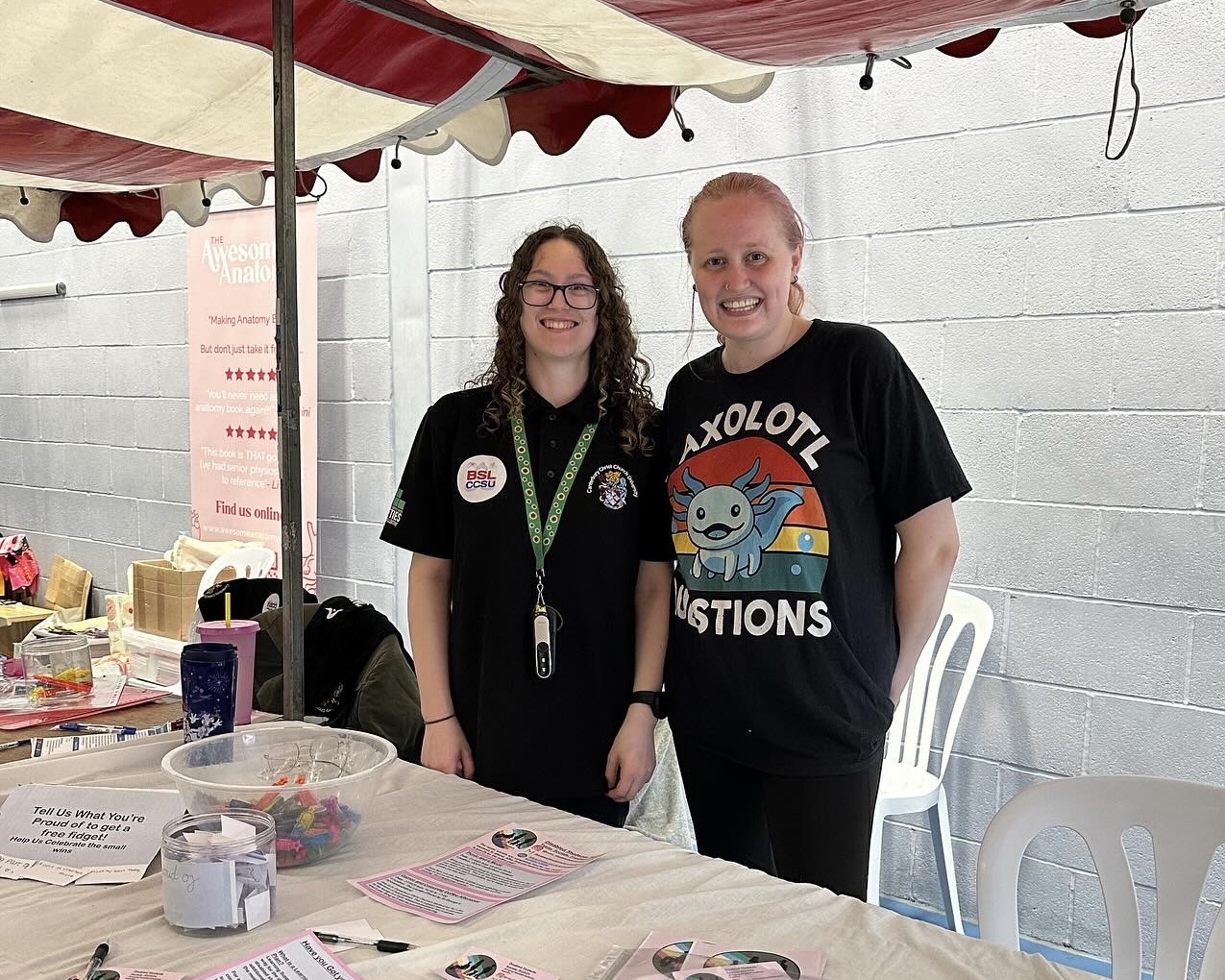First year BSc Psychology student Lily Pierce (featured left) shares her experiences with the Foundation Year degree at CCCU. In the photo above, Lily is manning the Disabled Students’ Society stall together with fellow committee member Jessica at the Fresher’s Fayre this year.
What is the Foundation Year Degree?
Canterbury Christ Church University (CCCU) offers Foundation Year Degrees in majority of their courses that allow students the opportunity to gain acceptance onto their undergraduate degree of their choice or to enhance their study skills in preparation for a degree. Having completed a Foundation Year in Social Sciences and now having just embarked on my first year of a Bachelor of Science degree in Psychology at CCCU, I can confidently say that the Foundation Year has been of great benefit to me.
Challenges Faced
As a disabled student, I initially found the transition from A-Levels/6th Form to university quite daunting, primarily due to the increased emphasis on independent learning. This transition entailed a decrease in classes and in-person contact time and an increase in self-study. Consequently, I needed to develop good organisational and time management skills, which proved to be one of the most significant challenges I faced during my Foundation Year.
However, my Personal Academic Tutor (PAT) – an academic staff member assigned to each student –worked closely with me to provide the necessary support to complete and manage my studies. This support included regular meetings, the implementation of extensions as per my Learning Support Plan (LSP), and ongoing reviews and adjustments as needed to stay on track with my assignments. One of the useful things I learned during this process was how to use a Gantt Chart to plan my deadlines, which enhanced my time management skills. Personally, I found it took an entire semester to properly settle into university life and learn a new way of learning, which also included effective notetaking, essay/assignment planning, reflective practice and writing.
Social and Society Life
The benefits of doing a Foundation Year involve not only substantial academic support but also opportunities to engage in the social aspects of university life. For instance, I noticed a lack of community and resources related to British Sign Language (BSL) and D/deaf culture, which prompted me to set up a new university society called “The British Sign Language Society” (BSL).
The society’s goal is to foster a more inclusive environment for BSL users by offering both formal lessons – which are conducted by a qualified BSL tutor and lead to a qualification accredited by Signature – as well as informal sessions – which are facilitated by BSL committee members and result in CPD-approved certification. These opportunities are available for students and staff interested in learning BSL at an affordable price. I have worked really hard to get not just one but two Level 1 classes that started in October this year. In the future, we aim to engage with the wider local community to further increase inclusivity.

I have also had the opportunity to participate in other societies, such as Psysoc (the Psychology Society)and the Disabled Students’ Society (DSS), both of which I now help run as the Wellbeing and Inclusions Officer. Psysoc has allowed me to connect with like-minded individuals through enjoyable social and academic events, including the ‘Psychology of Serial Killers’ trip, Psychology Aloud seminars, psychology debates, and a murder mystery. Similarly, DSS has provided me with the chance to meet and befriend other disabled students.

Advice for Current and Prospective Students
Overall, my experiences of the Foundation Year have been very positive and significantly prepared me for my first year of an undergraduate degree. My biggest pieces of advice for current or prospective students would be:
- Embrace and engage in all of the modules (even the ones you think or know you don’t like) because they are all interconnected and help you build a broader perspective and develop critical thinking skills.
- Plan out your time effectively – just because you only have two days of taught lectures doesn’t mean you have lots of spare time. For every hour you spend in a taught lecture, you should dedicate 4-5 hours to independent study (including assignments, readings, and lecture and seminars preparation). Using timetables and calendars as a visual aid could help you be more productive and organised.
- Ask for help if you need it – All of the lecturers are there to help you and want to see you succeed! Don’t be afraid to approach them and your PAT for help and support (I promise they aren’t scary!).
- There is more to university than just studying – join societies to meet new friends. If there isn’t a society you want, consider creating it yourself!
 psychology
psychology Amanda Diserholt
Amanda Diserholt 2478
2478


